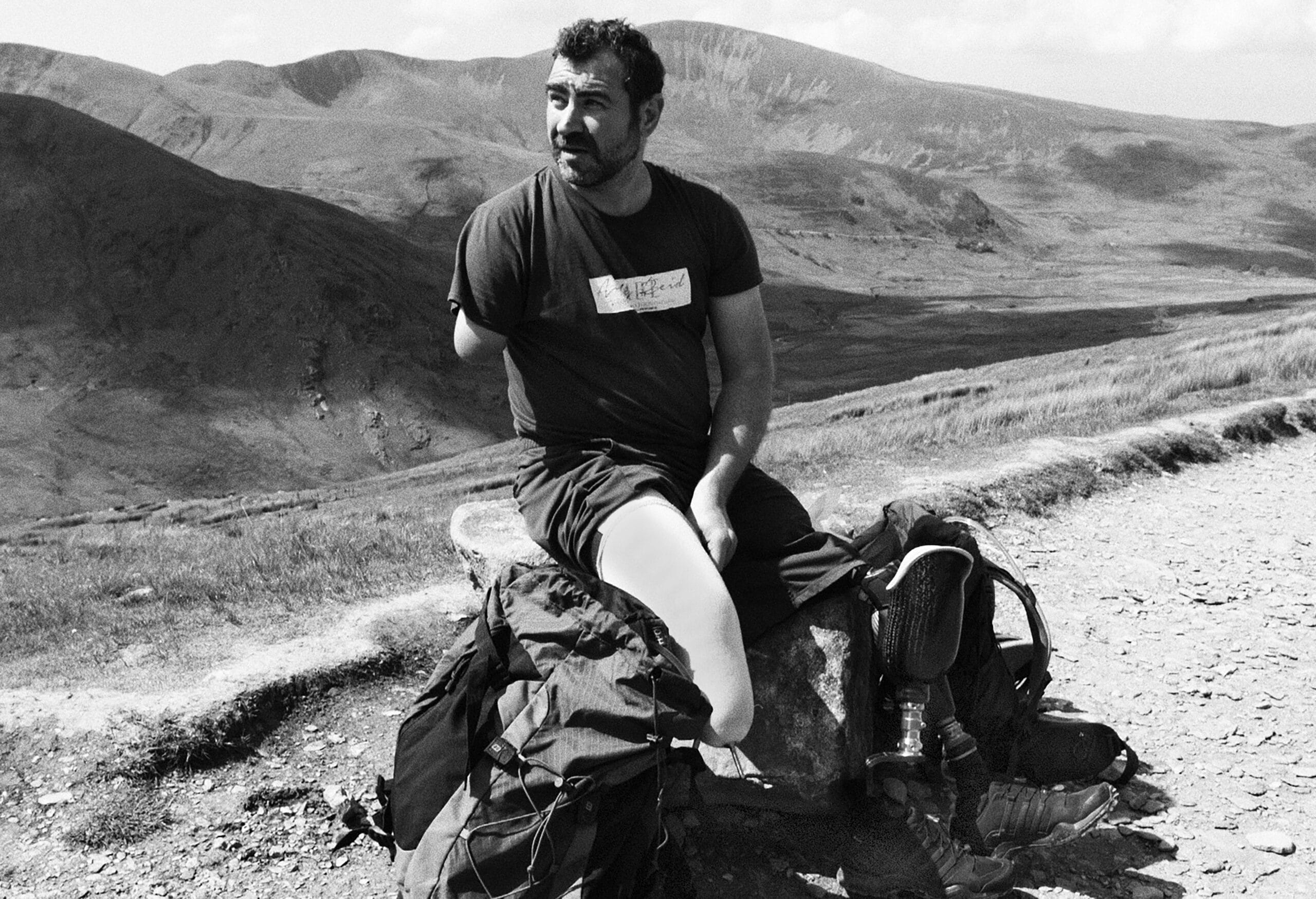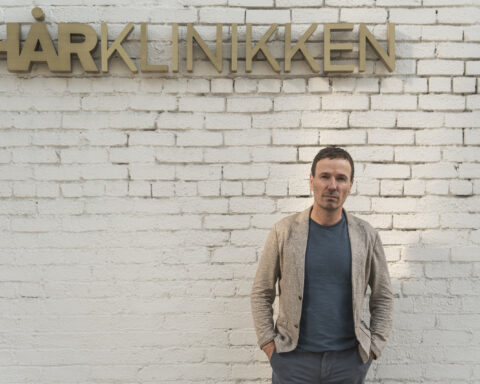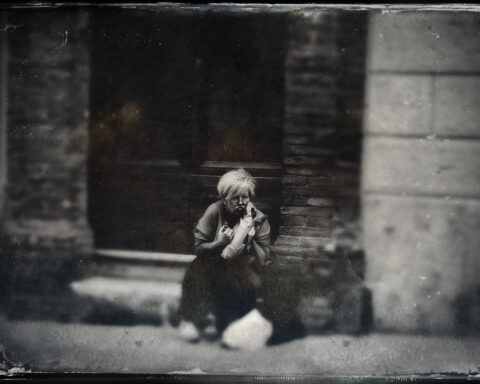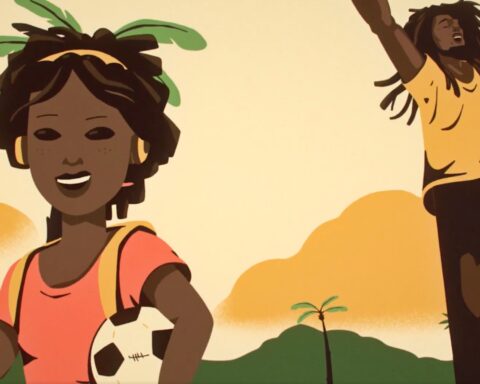When I was a young lad, my grandparents had a cupboard filled with their old clothes under the stairs. My sisters would play dress-up with my grandma’s fur coats, hats, and handbags. And I’d always put on my granddad’s old Army jacket and scarf, and run around in the garden, pretending to be in the Army. Then he would tell me all these amazing stories of when he was in the Royal Tank Regiment in World War II, and show me his pictures and medals. He was a wonderful man, and really inspired me to follow in his footsteps and join the armed forces.
So throughout my time at school, I didn’t concentrate much on academic stuff, but was obsessed with keeping myself fit so I could join the Army. I played rugby, and did a lot of cross country running, all with the intention of being in good shape so I could achieve my goal. But unfortunately, after I left school, I went for the medical and the recruiting sergeant said I was underweight for my height, and I wasn’t accepted. I was disappointed and angry at myself; I didn’t know there was a height to weight ratio that you needed to hit. So I went away and did some different jobs with the aim of getting a bit bigger and stronger. I worked on a building site carrying bags of sand and cement, then I got job in a sausage factory — and that definitely helped, I ate a lot of sausages! I then met a former Royal Marine in the gym, and he gave me a training program to follow. It took me five years of working out to put enough weight on, then at 21 years old, I achieved my goal and joined the Queen’s Lancashire Regiment, my local regiment. Looking back, it was probably a good thing I didn’t join straight from school, as I learned how hard you have to work in the civilian world to earn a living.
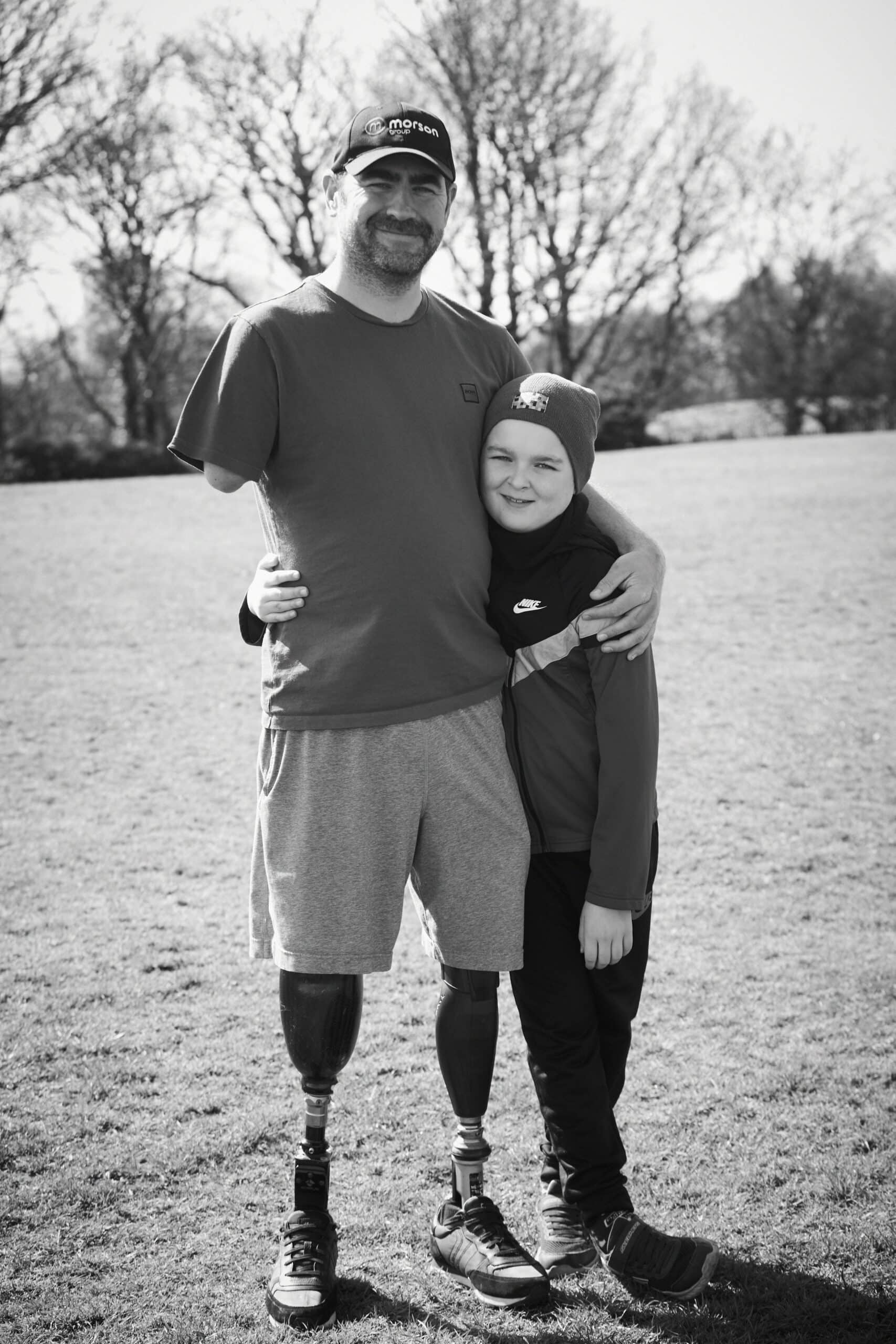
I went to Northern Ireland straight after completing my training, and was a little bit nervous about going on an operational tour so soon, but was also keen to put the skills I had learned into practice. It was 1998, during the Northern Ireland conflict, and we were patrolling the streets, searching cars and farm buildings. Then one day, me and a few of my mates went into the local town of Omagh to do a bit of shopping, buy a new shirt and a DVD for the weekend, and as we were walking back to camp a massive explosion went off behind us. We looked back, and there was a massive dust cloud over the town; the Omagh bomb had killed 29 people in the town centre. So we ran back to camp, put our uniform on, and reported to the gymnasium where they were bringing the casualties to be identified by their families. I’d only been in the Army about 18 months, and was straight into the harsh reality of what can happen during your time in the forces. But I’m a big believer in accepting responsibility. You’re in the Army and these things can happen, you’re not joining the Boy Scouts.
Next, I moved back to England and did a course to be promoted to a lance corporal; I wanted to work hard and climb the ranks. I joined the Duke of Wellington’s Regiment and spent five years based in Germany; and during that time I went to Kosovo in 2001, to Iraq ahead of the invasion in 2003, then back to Iraq in 2005 on a peacekeeping tour. That was quite a tough challenge, trying to earn the trust of the people we had been fighting a couple of years previously, but I enjoyed it. I liked being on the ground, looking after and protecting people, helping them to get fresh water, an education, and to make a living for themselves.
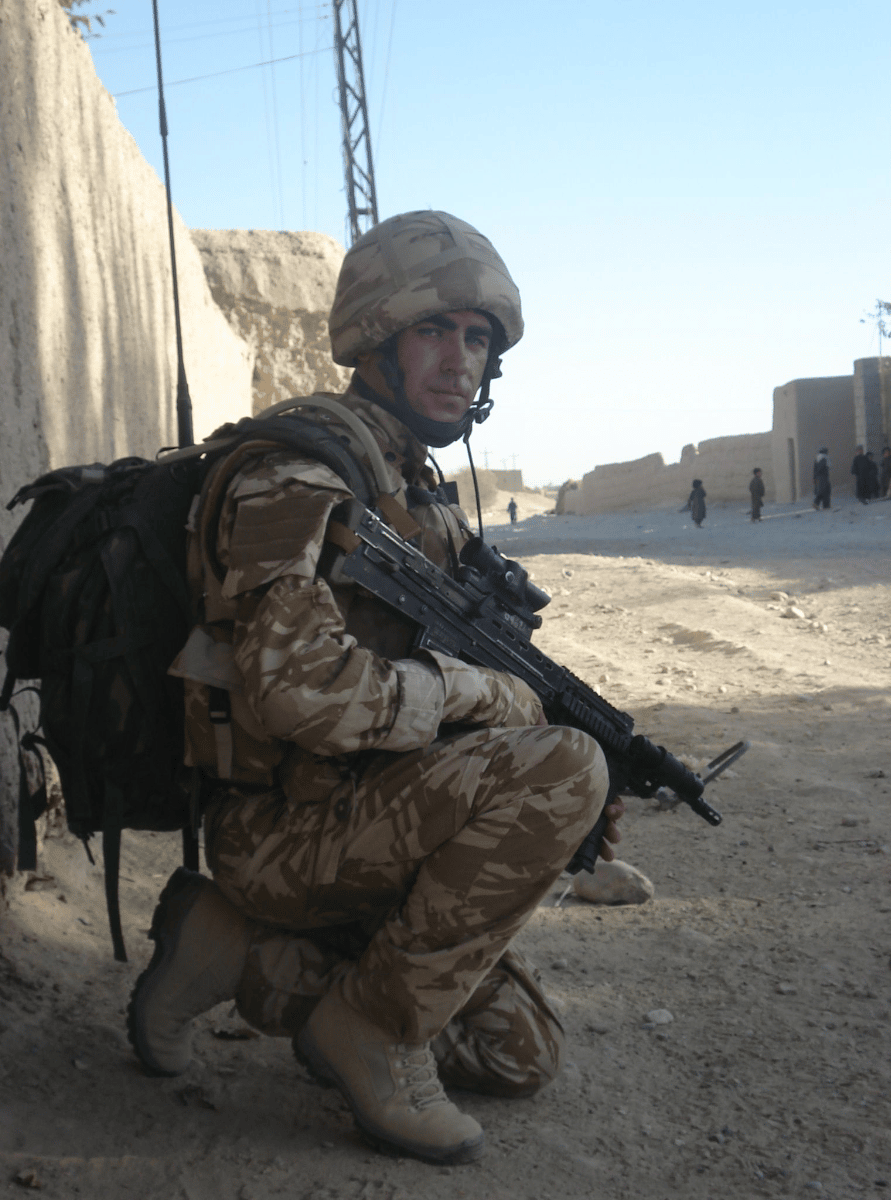
Then in 2009, I joined a big operation in Afghanistan called Panther’s Claw, to push the Taliban out of Helmand Province. Due to the intensity of the fighting over there, a lot of guys were getting killed and injured. So the Army came to our regiment and asked for 127 BCRs — battlefield casualty replacements — to go over there and step into the shoes of people who had been injured or killed. Our company commander asked for volunteers, and I put my hand up straight away. I’ve got friends who didn’t volunteer, and they feel guilty that they didn’t go and try to make a difference. So I’m very proud that I went. I’d been over there for about three months when, on October 13, 2009, I was asked to take my team on a routine foot patrol in a local village. A guy in front of me, called Jamie, had a metal detector and was sweeping it from left to right as we’re walking along the path. I was looking around, checking on what the the guys were doing, guiding Jamie to go left a bit, right a bit, when I stepped on the IED — the improvised explosive device. The next thing I was aware of, I was lying on my back, with a big dust cloud around me. It was quite strange, but I didn’t feel any pain at the time, just a stunned numbness throughout my body. It reminded me of that feeling when you bang your funny bone, but it’s not very funny. I looked down and couldn’t see me legs, my right arm was twisted behind my back, then I looked at my left arm and saw one of my fingers was hanging off, so I made a fist to keep hold of it. I started shouting for the medic, but I couldn’t hear myself. They then took me back to camp on an armored vehicle, then a helicopter flew me to Camp Bastian where I was put into an induced coma, and the surgeons did an amazing job of putting me back together. Then the next day, they flew me back to UK.
I was in the induced coma for about a week, then I remember waking up in this dimly-lit room, with crisp white sheets on the bed and crisp white walls. There were people standing over the bed who I didn’t recognise, so I started screaming at them. And then the doctor rushed over to calm me down and explain what had happened. As I began to focus, I saw my mum and dad, my stepmum, and then my girlfriend. The doctor explained to me that I had lost my right leg below the knee, my left leg above the knee, and my right arm above the elbow. I lay there listening to this information, and the first thing I thought was, ‘I’m a survivor, not a victim.’ Nine guys from our regiment passed away on that tour, but I was still here.
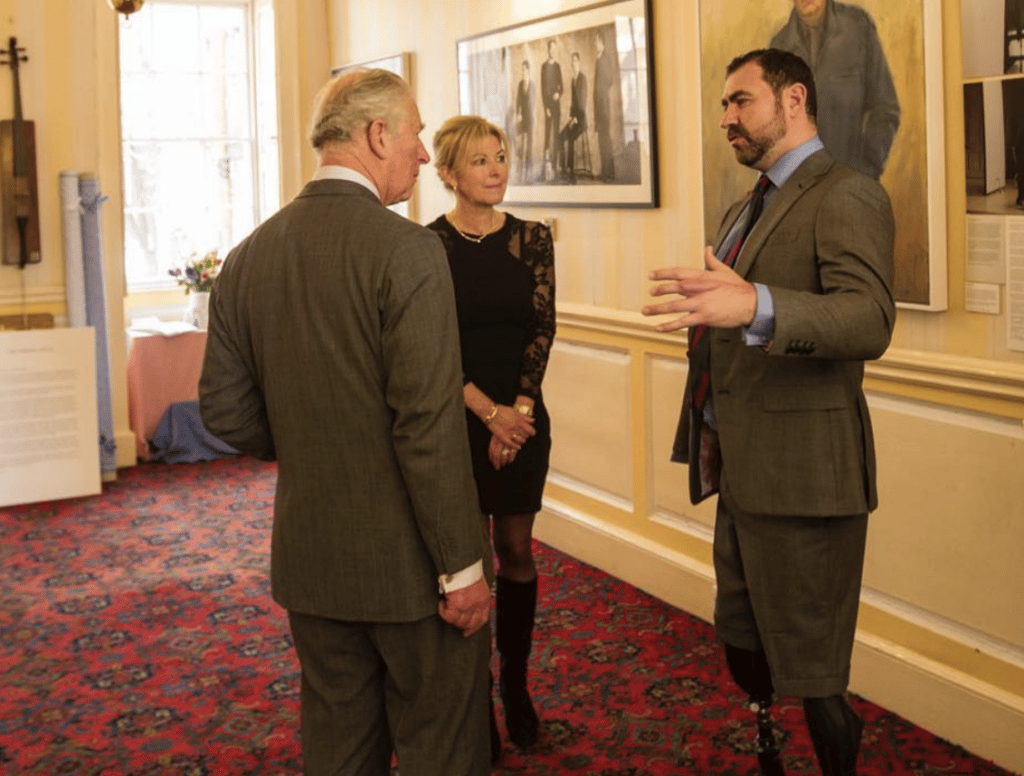
Straight away, I accepted responsibility for my actions. There was no point blaming Jamie for not finding the IED, no point blaming the government, no point blaming the Taliban. I’d joined the Army. It was my decision. And by accepting responsibility for that, I was able to be mentally stronger and move forward. People waste so much energy trying to blame people and find fault. I was in a car crash when I was five years old, and my mum crushed her leg and had to have it amputated. My mum brought me and my three sisters up with one leg, with no stair lift in a three-storey Victorian house. So I thought, ‘I better get on with it.’ And that’s what I did.
Lying in that bed, I started to set myself some short, medium and long-term goals. A few months before I went to Afghanistan, I’d met my girlfriend Claire, and before the accident, I’d decided I was going to ask her to marry me when I got home. There was no reason why that plan had to change, so I set that as my ultimate long-term goal; I wanted to walk down the aisle to marry her. Next, I set myself a medium-term goal. The following July, the Duke of Wellington was coming to our camp, and everyone in the regiment was going to get an operational service medal in front of their families. So I thought, if I can stand up that day to receive my medal, and march off the parade ground, all the wives and girlfriends, mums and dads, will know that if their loved-one gets injured, with hard work and determination they can move forward with their lives. So then, I needed to set a short-term goal. The day after I woke up, I asked the doctor how long it would be until I could go home to my family for the weekend. He said I could go home when I could get myself off my bed, onto my wheelchair, then onto the floor, then back onto my wheelchair. I said, ‘Fantastic, I’ll be going home on Friday.’ It was Monday, I think. He walked away shaking his head, which made me even more determined to prove him wrong. That day, I started practicing climbing in and out of my wheelchair, and I went home that weekend, 10 days after coming out of the coma.
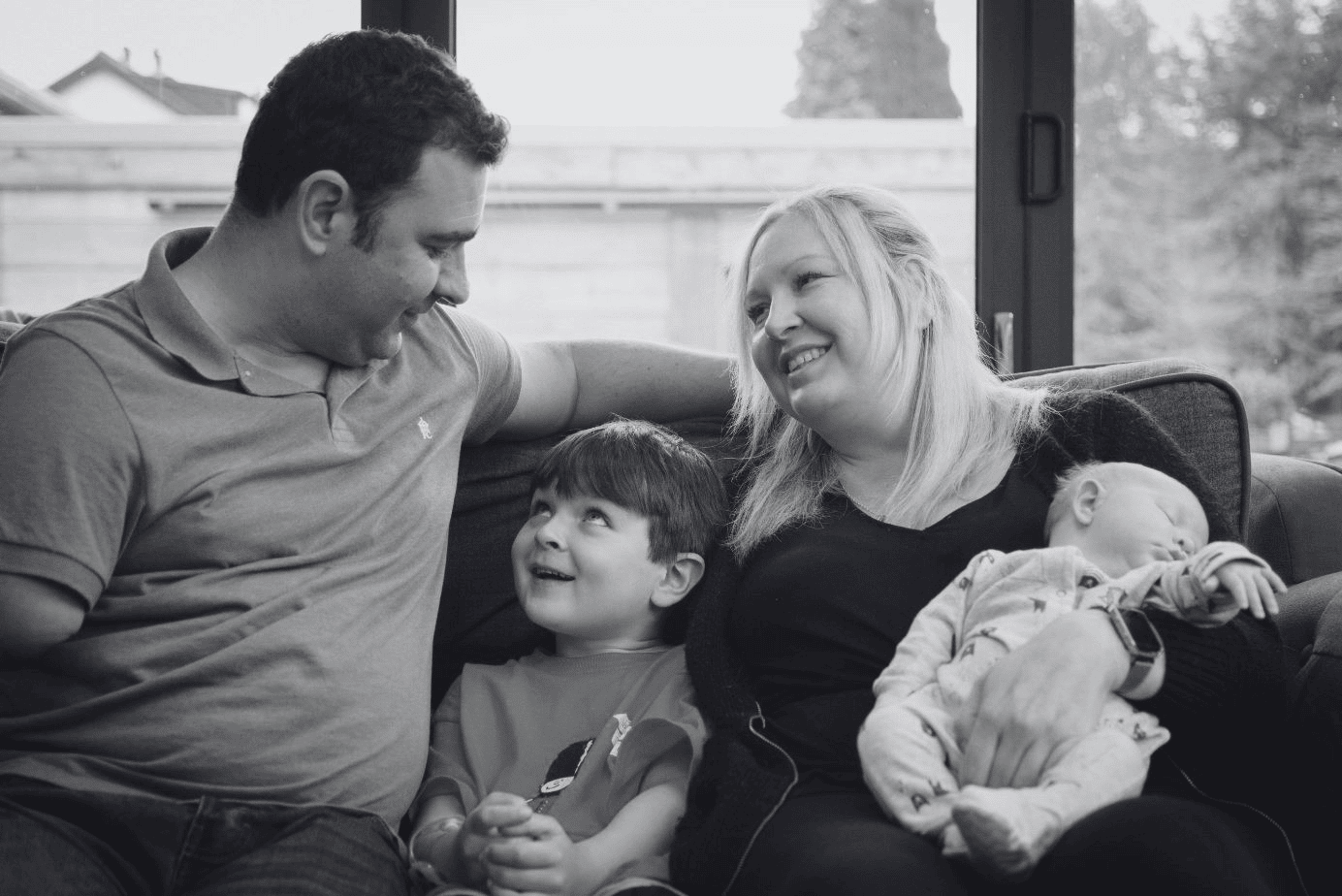
So I set myself these goals, then broke them down into achievable pieces. And that’s what I’ve done ever since. I set myself a long-term, medium-term, and immediate goals, and every time I achieve one it’s like stepping up a rung of a ladder. And I tell people what my goals are, which is important, as they help to keep you on track. Since losing my limbs, I’ve done a 400-mile bike ride around the UK, kayaked 125 miles from Devizes to Westminster, jumped out of an airplane a couple of times, and done a 100-kilometre hand-cycle across the beaches in Normandy, France. And I’ve achieved my first long-term goal, and walked down the aisle, in full military uniform, and married Claire. We got married in 2011 and now have two children William, nine, and Scarlett, four. I’m a proud man, but I’m not too proud to say I wouldn’t be where I am today if it wasn’t for Claire. We had only been together for three months before I went to Afghanistan, and she’s been there for me ever since. Behind closed doors, things do get tough, and I do get depressed and angry. I get frustrated by little things; I can drive a car, but I can’t hold a hammer and a nail at the same time to hang a picture on the wall. So Claire calms me down, and says, ‘We’ll do it together.’ So she holds the nail and I hold the hammer — there’s no way I’m doing it the other way round!
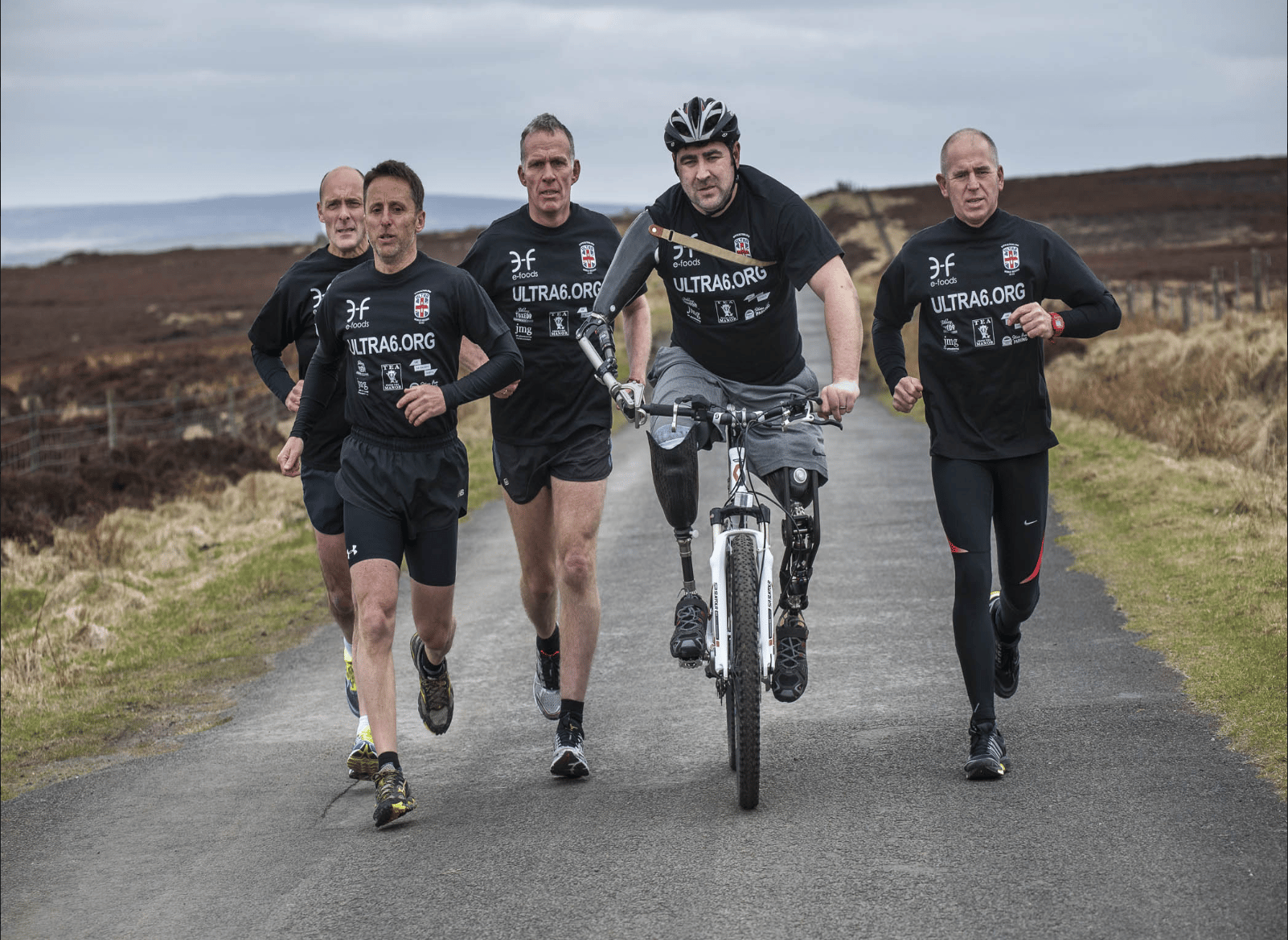
In 2019 I got an MBE in the Queen’s Birthday Honours list, which was amazing. People started to pay a bit more attention to me after that, so I decided to use that to help other people, and launched the Standing Tall Foundation to focus on drug and alcohol addiction and mental health support. I’ve been supported by a lot of military charities, and now that I’m fit and able I want to give back. I’ve got a lot of friends in the armed forces who have post traumatic stress disorder, but it’s not just for veterans, we want to help anyone struggling with their mental health. We’ve got a fully qualified counselor who works for the foundation, and he’s seeing 20 to 30 people every week for anxiety, depression, and bereavement issues. Many men don’t want to ask for help, but I want to try and break that stigma. I’ve had friends in the armed forces who have committed suicide, and also civilian friends who have killed themselves because they lost their job and couldn’t provide for their family. People know how strong and proud I am, but if I can ask for help from a counselor, then so can they. There’s no problem that’s too big, or that no-one else has been through. In life we all make mistakes, and as long as we learn from it, anything can be rectified. The answer is not to take your own life, it’s to learn from it, become stronger, and a better person.
I climbed Kilimanjaro when I was 22, as part of an Army tour. I had all my arms and legs and was physically fit and strong, but I was not as mentally strong as I am now. So exactly 13 years after I was lying on that stretcher in Afghanistan, I’m going to climb it again. There’s a few reasons I want to do it. We have something called our ‘Alive Day’, which the anniversary of being seriously injured, where we celebrate being alive. What better way to mark it than climbing the world’s highest free-standing mountain, and really feeling alive. We’re raising money for the foundation, and every £50 we raise can pay for a counseling session for someone who needs it, and could save a life. It’s also to prove to myself that despite my disability, I can still rise to these challenges. And maybe an injured veteran, or someone who is just struggling with life, will see what I’m doing and decide to come downstairs for the first time in months, and take their kids to school. If just one person gets inspired to make a small step forward in their life, it will be worth every step I take.
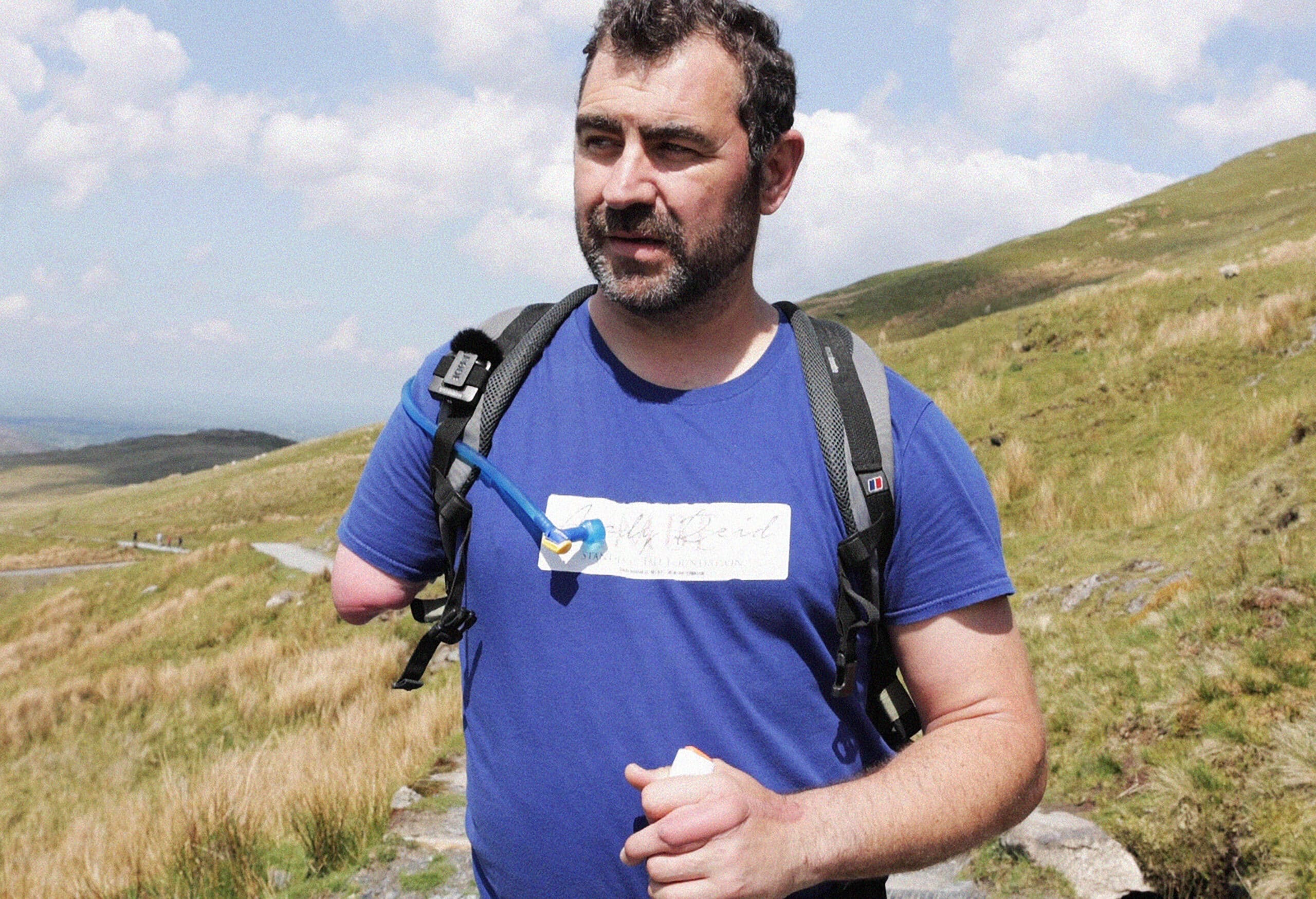
Learn more about the Standing Tall Foundation and donate
Andy was speaking to Mr Feelgood co-founder Pete Samson


